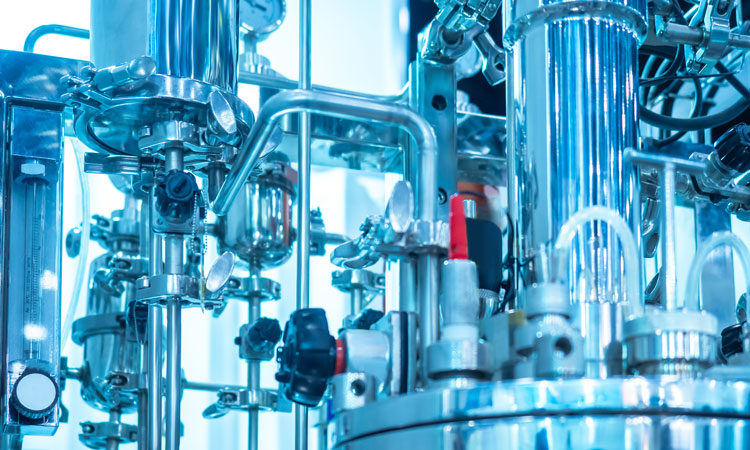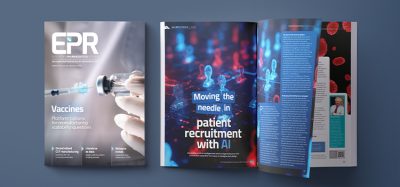Harnessing industry advancements to accelerate upstream process development
Posted: 3 February 2025 | Dr Li Yang (Altruist Biologics), Dr Shidong Shi (Altruist Biologics) | No comments yet
Here, Shidong Shi, Head of Upstream Process Development, and Li Yang, Vice President of CMC Development at Altruist Biologics, discuss the key trends in upstream processing and highlight their approach for overcoming challenges in the field.


What are the top trends or recent developments relating to upstream processing?
Upstream processing of mammalian cell culture has seen several significant trends and advances in recent years, following demand for lower cost of goods (CoGs), higher flexibility and more environmental sustainability.
Top trends and recent developments in the field include:
- Single-use technologies: Single-use bioreactors and other disposable components are becoming increasingly popular.
These technologies reduce the risk of cross-contamination, lower cleaning and validation costs, and offer greater flexibility and scalability. One of the biggest shortcomings of single-use bioreactors is its scalability, but this has been comparatively improved in recent years. - Continuous processing: Continuous bioprocessing, or perfusion processing upstream, is gaining traction as it offers several advantages over traditional batch or fed-batch processing, including increased efficiency and flexibility, reduced production times, reduced footprint and more consistent product quality.1 This approach is being facilitated by advances in real-time monitoring and control technologies.
- Process Analytical Technology (PAT): PAT tools, especially Raman spectroscopy, are being increasingly used for real-time monitoring and control of upstream processes.2 These tools help to maintain optimal conditions and ensure consistent product quality using a real-time, non-destructive and non-invasive approach for in-line monitoring.
- Automation and digitalisation: Automation technologies, including robotics and advanced control systems, are being integrated into upstream processes to improve efficiency and reduce cost of manpower. In recent years, leading pharmaceutical companies, such as Sanofi, successfully launched smart factory programmes. Tools such as machine learning (ML) and artificial intelligence (AI), like AI-assisted process development, while still a work in progress, have shown great potential in reducing cost, improving process consistency and accelerating timelines.
- Sustainability initiatives: Strategies such as reducing water and energy consumption, minimising waste and hazardous chemicals, and using more environmentally friendly materials are becoming a key focus.
- Seed train intensification: This process uses high cell-density cryopreservation and has emerged as an efficient approach to shorten upstream process duration.3 The traditional seed train process begins with a 1mL vial of cells thawed from a master cell bank and expanded to a level sufficient to inoculate the bioreactor, which usually takes 20~30 days. With high cell-density cryopreservation, cells banked at much higher density volume can intensify the process to as few as 10~15 days. This technology achieves higher process throughput, low labour cost, increased flexibility and reduced risk.
Can you discuss GMP-related challenges that Altruist has overcome in recent upstream processing projects? What lessons can you offer to other manufacturers/drug developers?
A few challenges that we have overcome in our upstream processing projects include finding solutions for media lots variation, microbial control strategy in upstream process, and the impact of excursion case in large-scale production: when one or more critical process parameters (CPPs) are out of the proven acceptable range (PAR) but only for a relatively short period of time. This can result from emergencies such as equipment failure, power shut down, etc. The impact of those cases to critical quality attributes (CQAs) should be studied during process characterisation to anticipate the influence to at-scale batches.
Media lots variation may affect the consistency of process performance and product quality attributes. We were able to overcome this challenge by conducting a qualification study in small scale to evaluate the performance of a new media lot before full-scale production, directing a comprehensive critical material attributes (CMA) study for media material and establishing media material control strategies, and implementing strict supplier management and regular audits of supplier quality control processes.
When process parameters are out of criteria for a short time due to equipment not working, eg, a power shut down, we conduct a thorough risk assessment through small-scale excursion studies to mimic the high-risk case of the large scale
For our microbial control strategy in upstream process, we established an appropriate bioburden limit of the raw material, a media solution hold time limit in pre-filtration based on the microbial levels in the media solution, and additional in-process testing for microbial levels, such as solution/intermediate pre-filtration.
When process parameters are out of criteria for a short time due to equipment not working, eg, a power shut down, we conduct a thorough risk assessment through small-scale excursion studies to mimic the high-risk case of the large scale. The results were helpful for evaluating the impact of deviations during larger scenarios.
What is a key regulation impacting upstream processing and what advice would you give to manufacturers in meeting its requirements?
One of the most important regulation guidelines launched in recent years relating to upstream processing is the ICH Q13.4 This guideline focuses on the development and manufacturing of continuous manufacturing processes.
Key recommendations for manufacturers in the sector include:5
Invest in advanced PAT: To keep the process performance in a steady state, implementing robust PAT tools to monitor and control the upstream parameters in real time is crucial for the continuous manufacturing process. This includes sensors, analysers and software that can provide continuous feedback on critical process parameters (CPPs) and critical quality attributes (CQAs).
Considerations for a successful tech transfer of a biologics upstream process
Develop a comprehensive control strategy: Establishing a robust control strategy that includes real-time monitoring, feedback and feedforward controls are the critical requirements from ICH Q13 to ensure process stability and product quality. This can be based on implementing big data or AI-assisted models for a thorough understanding of the process and its variability. Establishment of digital twins for the manufacturing facilities can also enhance control of the process.
Implement robust data management systems: Utilising advanced data management and analytics systems to handle the large volumes of data generated by continuous manufacturing processes can help enhance process understanding. Ensuring data integrity and traceability to support regulatory submissions and inspections is as always one of the major considerations for manufacturers.
Focus on Quality by Design (QbD): Apply QbD principles to upstream processing to ensure consistent quality.
Training and skill development: Invest in staff training to ensure personnel are proficient in operating and maintaining continuous manufacturing systems. This includes understanding the principles of continuous manufacturing, PAT and data analytics.
What are the two most overlooked areas in upstream processing in terms of development and advancement? What would you recommend to manufacturers?
The two often overlooked areas in upstream processing are:
Sustainability and green manufacturing practices
Upstream processing often lags in implementing green technologies and practices that reduce environmental impact.
Manufacturers should focus on integrating sustainable practices such as reducing water and energy consumption, minimising waste and using renewable resources. Techniques like continuous manufacturing, single-use technologies, automation and digitalisation can also increase sustainability by improving efficiency and reducing the footprint and energy cost of manufacturing facilities.6
Additionally, exploring alternative cell culture medium, with fewer components that are not environmentally friendly, and more efficient cell lines can lead to greener processes.
PAT and real-time monitoring
While PAT has been a buzzword for years, its full potential is still under-utilised in many upstream process settings. By leveraging PAT and real-time monitoring, manufacturers can achieve tighter control over their processes, leading to higher yields, better product quality and reduced variability.
Manufacturers should invest in advanced sensors and analytical tools, such as Raman spectroscopy, that enable real-time data acquisition and analysis. Implementing robust PAT frameworks can lead to better process control, reduced batch failures and more consistent product quality. Another advantage of PAT is that it can generate more data points compared to traditional off-line tests. Embracing ML and AI to analyse big data can further optimise the process by predicting and mitigating issues before they arise.
About the authors


Head of Upstream Process Development, Altruist Biologics
Dr Shi joined Altruist Biologics in 2022 in his current role. Prior to this, he began his career at Innovent Biologics in 2020 as a cell culture researcher and supervisor, responsible for leading the development of upstream process and Innovent’s proprietary IP in-house media.
Dr Shi has successfully led the upstream process development for more than 30 IND projects, six process characterisation studies, and three BLA submissions. He has over four years of experience in CHO-cell upstream process development and in-house cell culture medium development. Dr Shi holds a doctorate’s degree in mechanobiology from the National University of Singapore.


Vice President of CMC Development, Altruist Biologics
Dr Li Yang brings over 10 years of industry expertise in biological drug and vaccine development, manufacturing and registration. Previously, he held key roles as Vice President of CMC Development at Innovent Biologics and Chief Technology Officer at Clover Biopharmaceuticals.
His background includes upstream process development at Bristol-Myers Squibb and Celgene. Dr Yang has played a pivotal role in the registration of two biologics and led over 20 IND submissions across multiple global markets. He holds a doctorate’s degree in biological engineering from the Massachusetts Institute of Technology.
References
- Matanguihan C, Wu P. Upstream Continuous Processing: Recent Advances In Production Of Biopharmaceuticals And Challenges In Manufacturing. Curr Opin Biotechnol. 2022; 78:102828.
- Esmonde-White KA, Cuellar M, Lewis IR. The Role Of Raman Spectroscopy In Biopharmaceuticals From Development To Manufacturing. Anal Bioanal Chem. 2022; 414(2):969-991.
- Seed Train Intensification Using High Cell Density Cryopreservation [Internet] Millipore Sigma. Available from: https://www.sigmaaldrich.com/HK/zh/technical-documents/technical-article/cell-culture-and-cell-culture-analysis/cell-culture-for-manufacturing/seed-train-intensification-high-cell-density-cryopreservation?srsltid=AfmBOooiP-GLx8m8oMIMeQK3Wx86JdWgM8CC8bSn63M9hZqppCys8aU4
- ICH Q13: continuous manufacturing. [Internet] International Council for Harmonisation of Technical Requirements for Pharmaceuticals for Human Use 2022. Available from: https://database.ich.org/sites/default/files/ICH_Q13_Step4_Guideline_2022_1116.pdf
- 2023 20th Annual Report of Biopharmaceutical Manufacturing Capacity and Demand [Internet] BioPlan Associates, Inc. 2023April. Available from: https://www.bioplanassociates.com/20th
- Kaylor A. Advancing Sustainability In Biopharmaceutical Manufacturing. [Internet] TechTarget. Available from: https://www.techtarget.com/pharmalifesciences/feature/Advancing-sustainability-in-biopharmaceutical-manufacturing
Issue
Related topics
Artificial Intelligence, Bioprocessing, Bioproduction, Continuous Manufacturing, Process Analytical Technologies (PAT)









